Table of Contents
Phrasal verbs are a combination of a verb and one or more small word which is normally a preposition or an adverb. They are also used quite frequently and mostly, have different meanings than what they convey when used as a verb.
Phrasal verbs are widely used in real life English and familiarizing oneself with such helps in speaking the language better.
Phrasal Verb Definition
Phrasal verbs are formed by combining a verb with one or two particles, which can be a preposition or an adverb. This combination creates a new meaning that is different from the original verb.
Examples:
- Turn off the lights.
Turn off means to switch off. In this sentence, it instructs someone to stop the lights from shining, which can help save energy.
- She gave up on fixing it.
Gave up means to quit trying. This indicates that she stopped attempting to fix something, likely due to frustration or realizing it was too difficult.
- He ran into a friend.
Ran into means to unexpectedly meet someone. This sentence suggests that he coincidentally encountered a friend while going about his day.
Types of Phrasal Verb
There are four main types of phrasal verb:
Phrasal verbs can be categorized based on how their meanings and grammatical structures behave. There are generally four types: transitive, intransitive, separable, and inseparable. Understanding these distinctions will help you use phrasal verbs more effectively.
1. Transitive Phrasal Verbs
Transitive phrasal verbs require a direct object to complete their meaning. These verbs cannot stand alone and need something to act upon.
Examples:
- Put off:
They decided to put off the meeting until next week.
(They postponed the meeting.)
- Give up:
She finally gave up her bad habits.
(She quit her bad habits.)
- Turn down:
He turned down the job offer.
(He rejected the job offer.)
2. Intransitive Phrasal Verbs
Intransitive phrasal verbs do not take a direct object. These verbs make sense on their own and the action is complete without needing something to act upon.
Examples:
- Grow up:
He grew up in a small town.
(He spent his childhood in a small town.)
- Break down:
My car broke down on the highway.
(My car stopped working unexpectedly.)
- Show up:
She didn’t show up for the meeting.
(She didn’t attend the meeting.)
3. Separable Phrasal Verbs
Separable phrasal verbs allow the particle to be separated from the verb by the object. If the object is a pronoun, it must be placed between the verb and the particle.
Examples:
- Take off:
Please take off your shoes before entering.
(Remove your shoes.)
- Turn on:
He turned on the TV to watch the news.
(He started the TV.)
- Pick up:
I’ll pick up the kids after school.
(I will collect the kids.)
I’ll pick them up.
4. Inseparable Phrasal Verbs
Inseparable phrasal verbs do not allow the verb and particle to be split, even if the object is a pronoun. The particle must always follow the verb directly.
Examples:
- Look after:
She looks after her younger brother.
(She takes care of her younger brother.)
- Run into:
I ran into an old friend at the mall.
(I unexpectedly met an old friend.)
- Get over:
It took her months to get over the breakup.
(It took her months to recover from the breakup.)
Conjugating Phrasal Verbs
Like regular verbs, phrasal verbs can be conjugated to match the tense of the sentence. The verb part of the phrasal verb is the one that gets conjugated, while the particle (preposition or adverb) remains unchanged.
For example, with the phrasal verb give up, the verb give can be conjugated in different tenses:
Present tense:
She gives up easily.
In this sentence, gives is the present tense of give, while up remains unchanged.
Past tense:
They gave up on the project last year.
Here, gave is the past tense form of give.
Future tense:
- I will give up my seat if someone needs it.
In this example, give is in its base form because it follows will for future tense.
Another phrasal verb is take off:
Present tense:
- He takes off his shoes at the door every day.
In this case, takes is conjugated to fit the third-person singular form.
Past tense:
- She took off her jacket when she arrived.
Here, took is the past tense form of take.
Future tense:
- We will take off early to avoid traffic.
In this example, take remains unchanged since it follows will.
These examples illustrate how phrasal verbs follow the same conjugation rules as other verbs, making them versatile in all tenses.
How to Use Phrasal Verbs
Using phrasal verbs effectively involves understanding their meanings, recognizing their grammatical structure, and knowing how to incorporate them into sentences.
Phrasal verbs can often replace simpler verbs and add a more conversational tone to your speech. To use them correctly, it’s important to know whether they require an object, if they can be separated, and how their meanings may change based on context.
Examples:
- Look after
- Give up
- Run into
In the sentence She looked after her younger brother, the phrasal verb means to take care of someone. It demonstrates that look after requires an object (her younger brother) to complete its meaning.
In the example He gave up smoking last year, the phrasal verb indicates that he quit smoking. Here, give up is a transitive phrasal verb, requiring an object to clarify what was given up.
Another example is I ran into my friend at the store, where the phrasal verb signifies an unexpected meeting. This shows how run into can describe a situation without needing a direct object, making it an intransitive phrasal verb.
List of Phrasal Verbs
- Get up
- Give up
- Turn on
- Turn off
- Look for
- Come in
- Take out
- Put off
- Run out of
- Bring up
- Show up
- Pick up
- Check out
- Hang out
- Work out
- Why Phrasal Verbs Are Important
Why Phrasal Verbs are Important
Phrasal verbs are essential in English because they are frequently used in everyday conversations, making your speech sound more natural and fluent. They often consist of a verb and a particle (preposition or adverb) that, when combined, change the verb’s meaning.
Knowing phrasal verbs allows you to understand native speakers better, express ideas efficiently, and communicate more effectively.
Since many phrasal verbs have multiple meanings depending on the context, mastering them is key to improving your English skills, especially in informal settings.
Examples:
- Turn up:
She didn’t turn up to the party.
(She didn’t attend the party.)
- Give up:
He gave up smoking last year.
( He quit smoking.)
- Run into:
I ran into my teacher at the store.
(I unexpectedly met my teacher at the store.)
You May Also Like

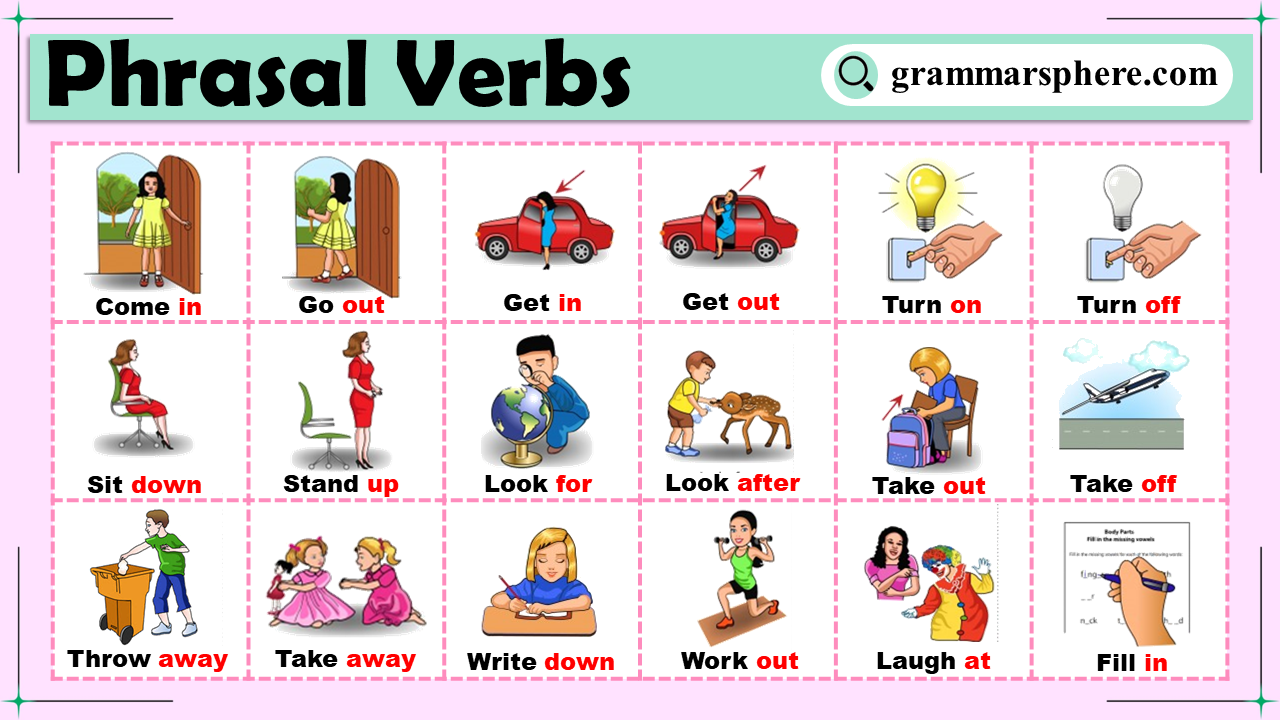
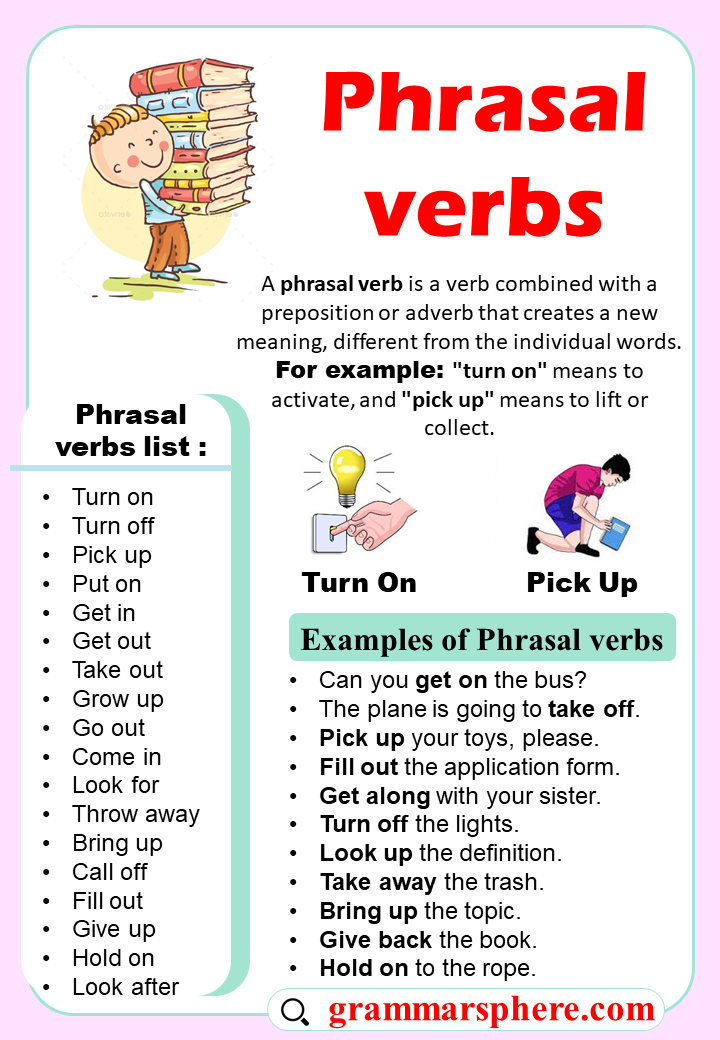
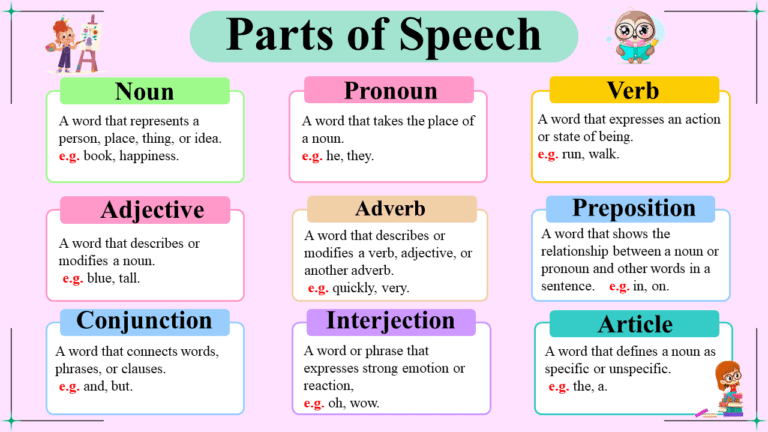
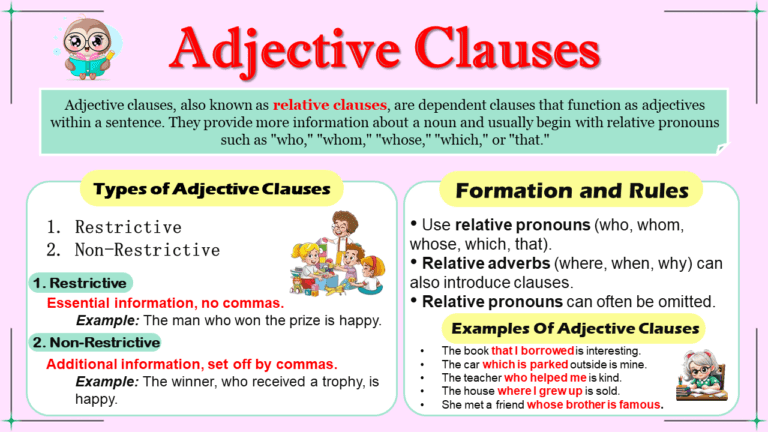
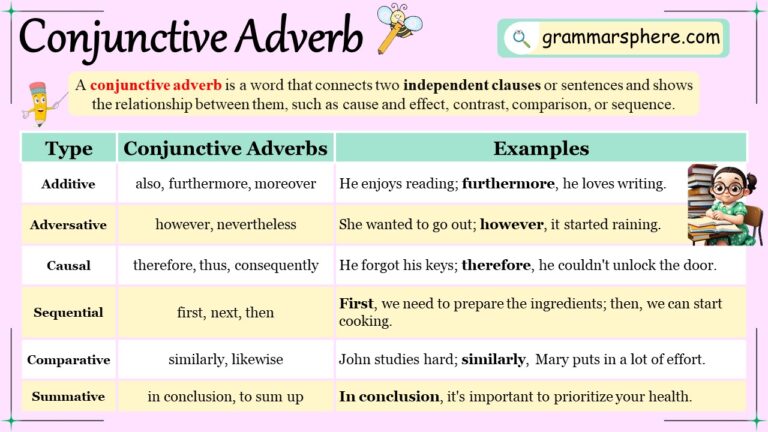

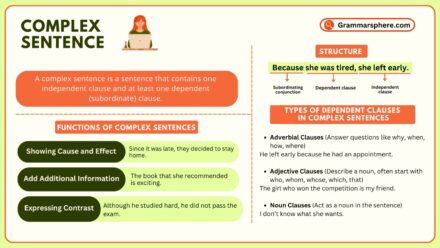
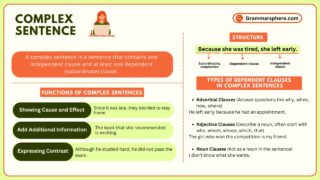
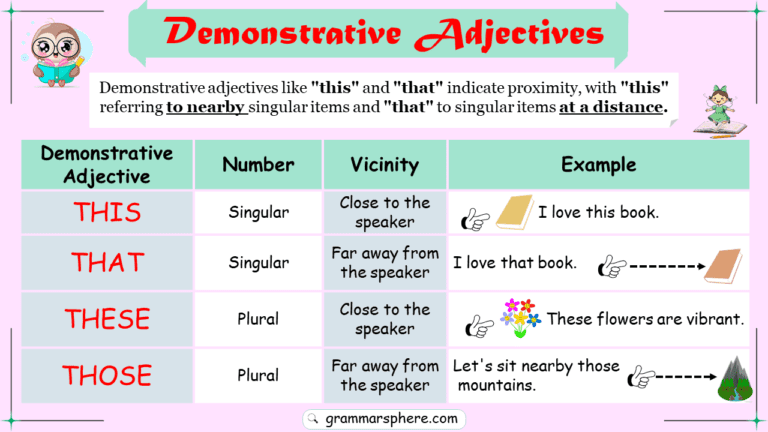

Leave a Comment